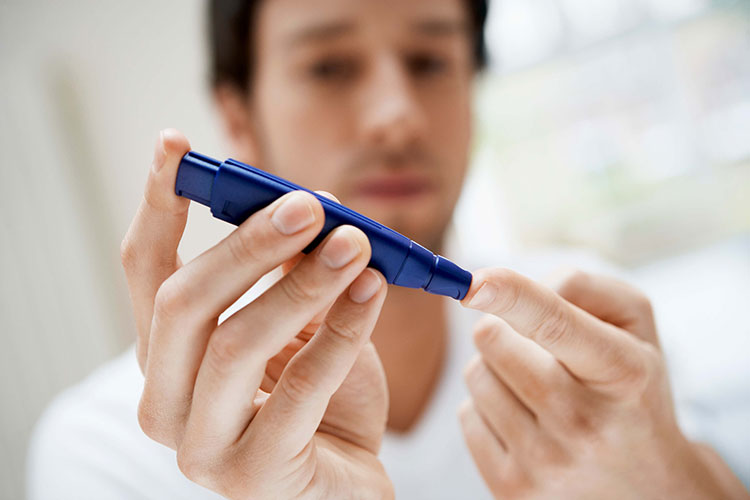Diabetes Mellitus (DM) is a syndrome characterized by high blood sugar caused by partial or complete deficiency of insulin.The cause of the disease is not known for sure. Environmental factors are focused on genetic predisposition.
The frequency of DM in society is about 10%. There are roughly two classes as type 1 and type 2.
TYPE 1 DM :
When a sugar high occurs, 90% of the pancreases of this type of diabetic diseases are destroyed
is required.
TYPE 2 DM :
It is often seen in obese and insulin-resistant patients. The disease occurs with the addition of a pancreatic b cell disorder that makes insulin to these two factors.
TYPE 1 / TYPE 2
Age of Onset : Under 40 Years / Over 50 years
Duration of Symptoms : Within Weeks / Within Months
Weight : Normal / Obese
Insulin Therapy : Necessary / Not Necessary
SYMPTOMS OF DM
Very thirsty, drinking a lot of water, weakness, fatigue, weight loss, skin infections, itching, dry tongue, forgetfulness how many weaknesses
diagnosis :
Fasting is diagnosed if blood sugar is above 126 mg/dlt twice. A glucose loading test is performed to detect hidden sugar. If the measurement at the second hour is above 200 mg/dlt, diabetes is diagnosed. Decayed glucose tolerance between 140_200 is called and they are candidates for diabetes in the future.
treatment:
1)Diet : Those who are obese from diabetic should definitely be reduced to their normal weight under the supervision of a doctor.
In addition, a diabetic diet should be applied for sugar regulation.
2) medication: There are oral pills and insulin therapy. Type 1 DM also starts with insulin first. Type 2 DM is also treated by mouth., if no response is received in the future, insulin is switched on. The most commonly used insulin regimen is the hormone effective insulin, which is given in the morning and before dinner.
DIABETES IN PREGNANCY :
The incidence of diabetes due to pregnancy increases. Only insulin can be used in diabetes during pregnancy. Every pregnant woman should be investigated for diabetes with a loading test during the course of her pregnancy.
COMPLICATIONS OF DIABETES :
1)Hypoglycemia: blood sugar may drop due to the treatment applied.
2)Diabetic keteacidosis: Acidosis that cannot be controlled by blood sugar and can affect all organs after excessive elevation
it is a painting.
3)Hyperosmolar non-ketotic coma: It is also called the coma table.
4)Lactic acidosis
5)Diabetic retinopathy: uncontrolled diabetics may lose their eyes, the frequency of cataracts increases.
6)Diabetic nephropathy: an important cause of chronic kidney failure is DM.
7)Diabetic neuropathy : It appears with pain and numbness in the feet, especially at night.

